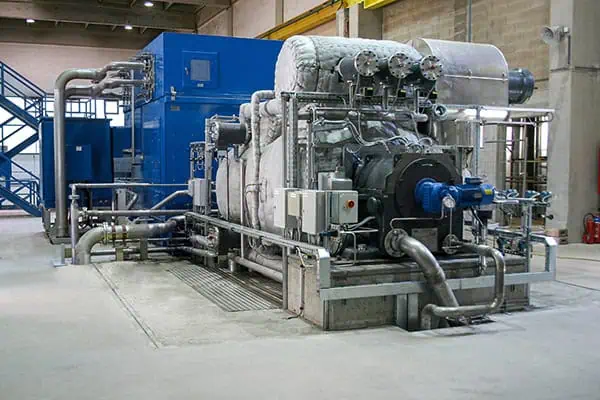STEAM turbines provide a valuable opportunity for many industries in South Africa to self-generate more of their own power requirements – and often from alternative fuels produced as a by-product of their processes.
According to Rudolf van Pype, steam turbine manager energy systems at WEG, this technology offers benefits including energy cost reductions, more stable supply of power and a lower carbon footprint.
A leading South African firm taking advantage of these opportunities is Sappi Saiccor.
Its mill at Umkomaas in KwaZulu-Natal is one of the world’s largest producers of dissolving pulp for viscose staple fibre – used mainly in the production of textiles but also in other household, industrial and pharmaceutical applications. Gas produced from this process represents a fuel source which generates steam for electricity production.
“A 45 MW extraction backpressure steam turbine from WEG will be adding to Sappi Saiccor’s energy generating capacity at its MgO3 plant,” says van Pype. “The power generated will be used for internal consumption.”
Steam turbine technology is also becoming increasingly versatile, to accommodate the specific requirements of the facilities they serve, he explains. At the Sappi Saiccor mill, for instance, there is the need to have 15 different load points served by the turbine – where in the past it was usual to have just two or three load points.
“It is now possible to provide many more load points – each one with its own inlet steam flow conditions,” he says.
“The steam turbine design can cater for a steam flow range that varies considerably. For the new unit at Sappi Saiccor, this range will be from 75 t/h to 300 t/h.”
As the leading manufacturer of steam turbines in Brazil, WEG has supplied a number of units of this turbine model to customers in the market there, he says.
The company’s factory in Brazil will design and manufacture the new unit bound for South Africa, and WEG will conduct the installation, commissioning and ongoing maintenance next year.
Van Pype highlights that there is significant interest in steam turbine technology among South African companies who produce steam as part of their industrial processes – especially those who have alternative fuel sources. He notes that load shedding has limited the productivity of many firms, who are now looking for longer term solutions.
“We receive regular enquiries from companies who operate boilers for their operations, looking for opportunities to reduce their operating costs while raising their production levels through a more reliable supply of electricity,” he says.
